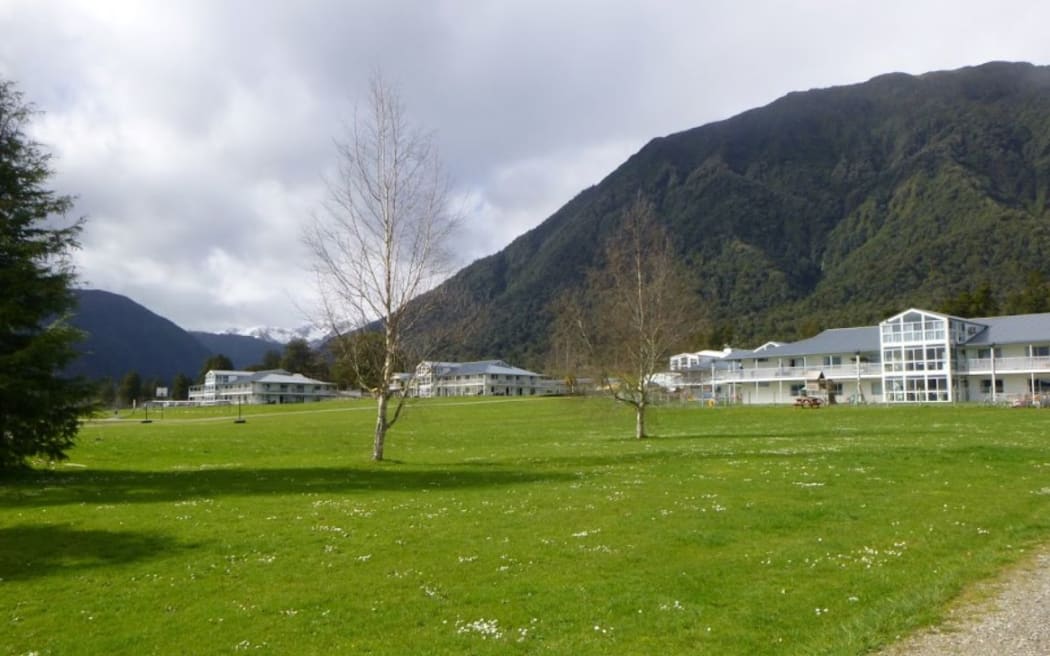The chief judge of the Employment Court has rejected a bid by Gloriavale’s leaders to have her stand aside from another case involving the employment status of members of the exclusive Christian community.

The Gloriavale Christian community on the West Coast.
Photo: Google Maps
Six former Gloriavale members have brought a case seeking to determine whether they were employees or volunteers during their time in the community.
The case involving the six women – Serenity Pilgrim, Anna Courage, Rose Standtrue, Crystal Loyal, Pearl Valour and Virginia Courage – is due to be heard in the Employment Court late this month.
The women’s application follows the landmark decision issued by Employment Court Chief Judge Christina Inglis in May, which found that three men who had been members of the community were employees from the age of 6.
Her ruling in that case found the men – Hosea Courage, Daniel Pilgrim and Levi Courage – were made to perform work that was “strenuous, difficult and sometimes dangerous” over a lengthy time for the benefit of Gloriavale’s commercial businesses.
Judge Inglis found the three men had worked up to 70 hours a week at Gloriavale and were subject to “rigorous, sometimes violent supervision”, being hit if they did not work fast enough.
Having people declared as employees allows workplace standards to be enforced, and Courage said he was motivated in taking the case to help people still at Gloriavale, situated on the South Island’s West Coast.

Levi Courage, left, worked in Gloriavale’s honey business before leaving the community.
Photo: Supplied by Gloriavale Leavers’ Support Trust
The women have now brought their own case under Section 6 (5) of the Employment Relations Act 2000, which allows the court to declare that someone has the status of an employee.
The defendants in both cases include the Labour Inspectorate of the Ministry of Business, Innovation and Employment (MBIE), which previously determined that Gloriavale residents were not employees, and the same group of senior male members of the community.
One of the Gloriavale defendants is Howard Temple, the current leader of the community who is referred to as the Overseeing Shepherd.
The others are the five “shepherds” who with him form the community’s leadership group – Fervent Stedfast, Enoch Upright, Samuel Valor, Faithful Pilgrim and Stephen Standfast.
Chief Judge Inglis heard the men’s case and is due to hear the women’s case also.
Temple and the shepherds have objected to this, seeking to have Judge Inglis recuse herself, or stand aside, from the proceedings.
The judge said their argument was “essentially advanced on the basis that a fair-minded lay observer may reasonably apprehend that I might be biased” in the second case, having been involved in the first.

Hosea Courage and Daniel Pilgrim outside court in Christchurch after winning their case against Gloriavale.
Photo: RNZ / Nate McKinnon
The Gloriavale defendants also said that some of the evidence in the first case was “prejudicial and irrelevant” to the determination of employment status.
This evidence included allegations of physical and sexual abuse, alleged tax and benefit fraud, a submission that Gloriavale is a “sex-based cult” and an allegation that the community’s original leader was a sex offender cloaking his activities under the guise of Christianity.
“While this information is certainly prejudicial and some of it lacks direct, if any, relevance, it is necessary to recognise that a judge, unlike a jury, is capable of putting aside irrelevant and prejudicial allegations,” the chief judge said.
“I do not accept that the identified evidence provides a sufficient basis for recusal.”
The defendants also said that some of the factual findings made in the earlier case were adverse to their interests.
These included the degree of control exercised over Gloriavale members’ lives, the role of the defendants in allocating work, the alleged policy of depriving members of food if they did not work, the alleged practice of “shunning” and the extent to which members could exercise free will to stay at or leave Gloriavale.
Judge Inglis said these factual findings and their significance, when viewed in context, did not warrant her standing aside.
* This story originally appeared in the New Zealand Herald.




















Discussion about this post